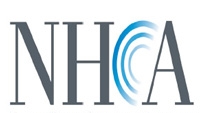Shure, NHCA release hearing test results from AES

Shure and the National Hearing Conservation Association (NHCA) have released group results of the hearing tests performed at the 2009 Audio Engineering Society (AES) Convention in New York. The free hearing screenings were conducted by the NHCA for several hundred attendees, many working in pro audio. Shure sponsored the screenings as part of its Listen Safe initiative, the company’s corporate cause in support of hearing conservation.
Noise-induced hearing loss is one of the most common occupational hazards for American workers, with an estimated 22 million at risk. The pro audio industry is especially at risk, because both stage and studio performers and technicians are often exposed to high levels over long periods of time, and the industry itself is not regulated by the federal government in this regard. This is especially important due to the mission-critical nature of the work, because hearing damage can significantly impact the ability to continue working in the field.
According to experts such as Dr. Michael Santucci of Sensaphonics Hearing Conservation, an annual hearing screening is the single most important tool in maintaining hearing health. Santucci was among the audiologists manning the AES hearing test facility. “Hearing loss is insidious due to its gradual onset,” he said. “By establishing a baseline and retesting annually, problems can be identified and addressed before the damage becomes career-threatening.”
During the AES show, 425 attendees received a hearing test and answered a hearing history survey. Testing was conducted by technicians certified by the Council for Accreditation on Occupational Hearing, supervised by an occupational audiologist with a doctor of audiology degree. Key findings of the testing, released last week, included:
- Nearly one in four participants reported difficulty hearing in one or both ears.
- More than one-third of participants reported experiencing tinnitus (ringing or buzzing) in one or both ears.
- Average hearing levels among those who reported using hearing protection during work were 1dB to 2dB better than those who did not use protection.
- Those working in audio-specific jobs had the worst hearing results, while students had the best hearing levels.
- Differing results were noted among different job titles, suggesting that some types of audio engineering work may present a greater risk of hearing loss.
The professional video industry's #1 source for news, trends and product and tech information. Sign up below.
